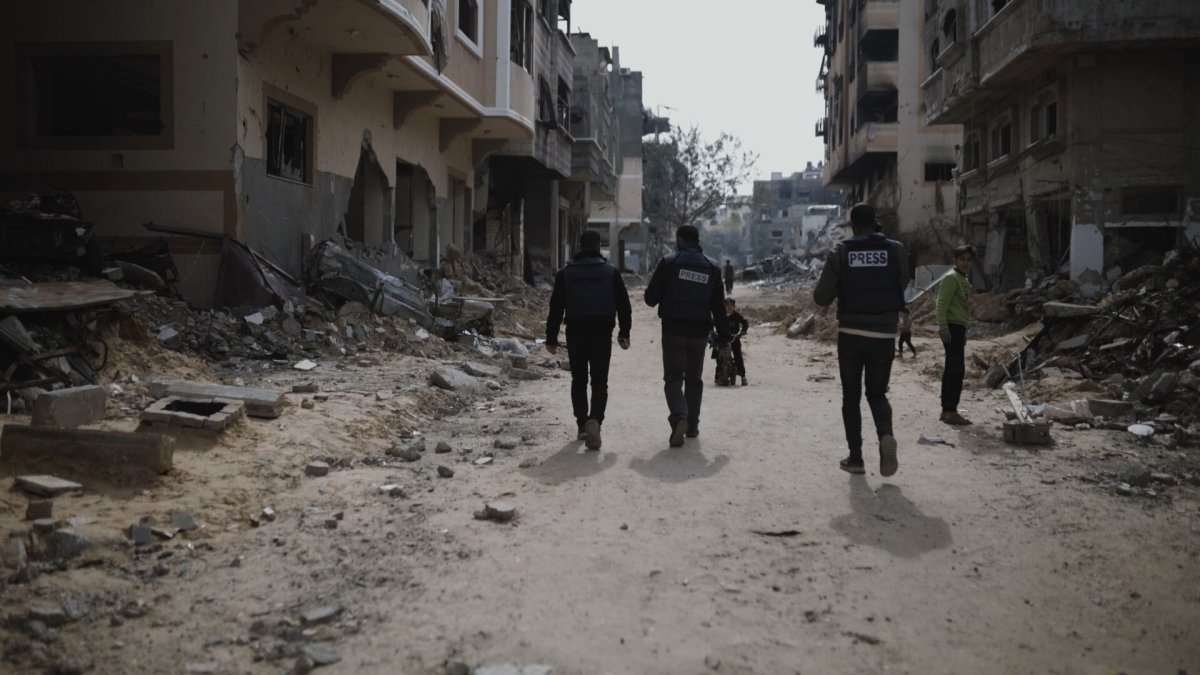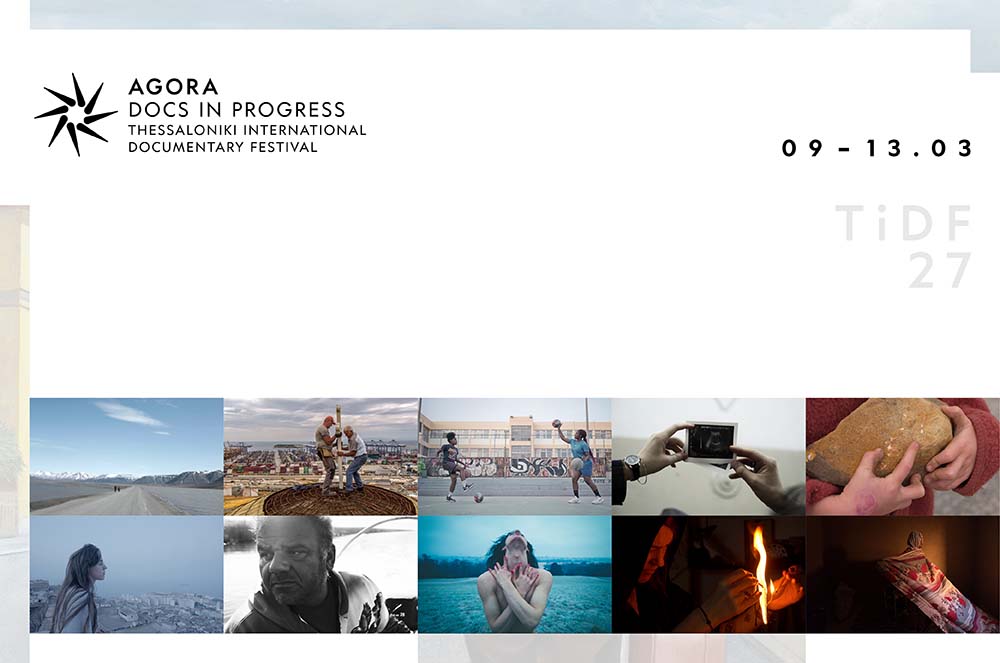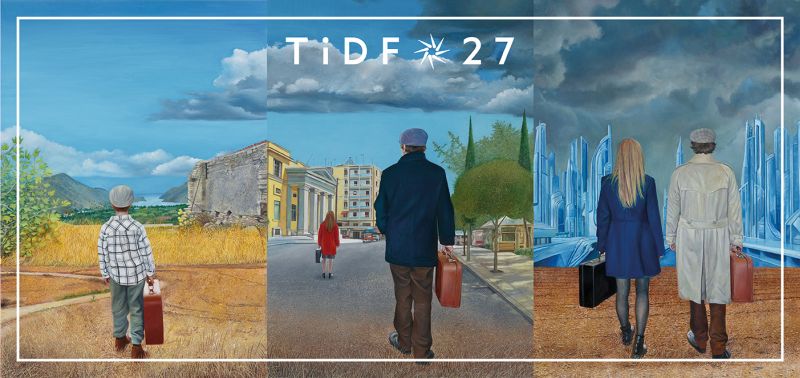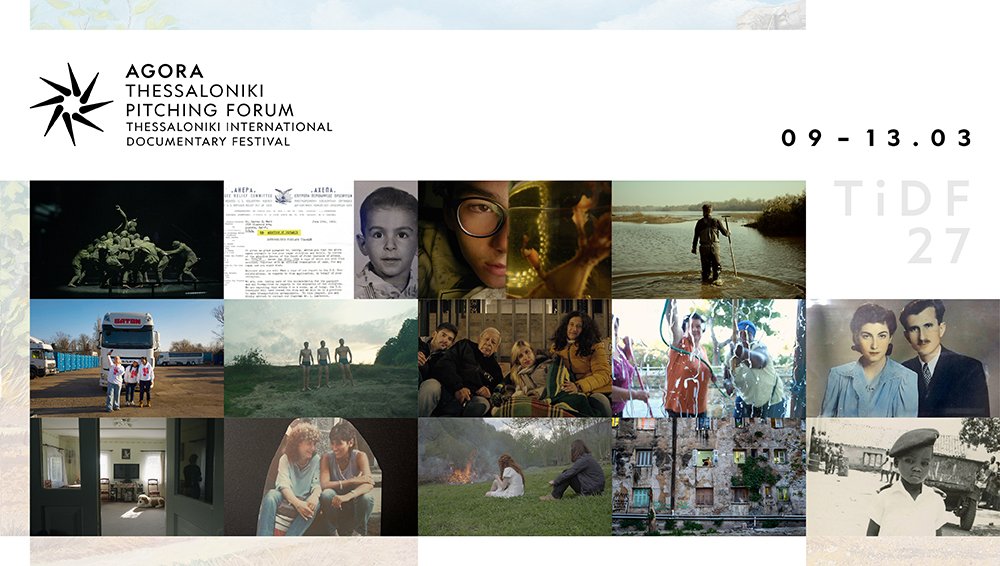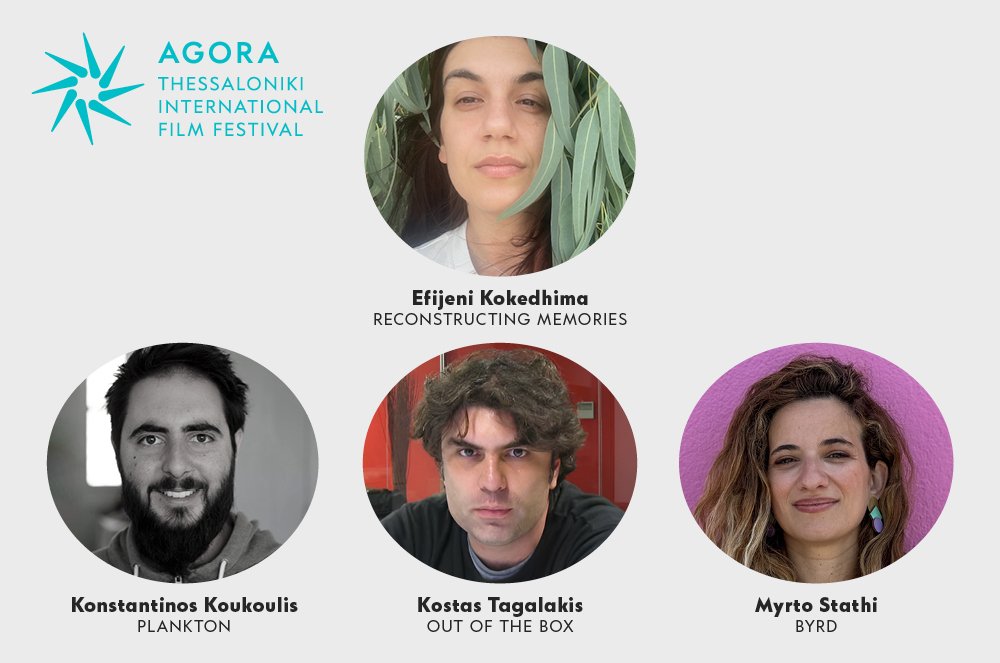WAR, IMMIGRANTS AND ART
The press conference held on Saturday, March 8th at the Olympion Renault theatre in the framework of the 5th Thessaloniki Documentary Festival - Images of the 21st Century, turned into a lively discussion revolving around the impeding war in Iraq, immigrants and the reality that images in cinema can convey.
Damian Pettigrew, director of the film Fellini, I’m a born liar began first. “Fellini’s films had a great impact on my schooling in cinema. I started with the work of Kalvino and later I became interested in Fellini. We met, cooked and spoke about Cinecitta and creating false scenery. He never filmed at Cinecitta, though, only in natural surroundings. Fellini was a master in the art of deceit. He could reveal the truth by lying. When I interviewed him he answered to all my personal questions, something he would never do with journalists. With them, Fellini would speak feverishly but never revealed any personal details. He was able to lie to them but the excerpts from his films in my documentary show that he never lied to his art”.
Enzo Balestieri director of the film Clown in Kabul surprised us by refusing to speak about his film on account of the impeding war. “I’d like to take this opportunity to speak about peace and that cowboy who is trying to seduce us into war. Bush, like Fellini, lies with words. People will see the truth if they look only at the images without words or narration”.
Pettigrew agreed with Balestieri and said that we already have an overabundance of images as it is. “I try to avoid being photographed because I don’t want to contribute anymore to this pollution. Many say that art and images can save the world but no work of art saved the people at Auschwitz”. Balestieri refused to be photographed.
With an intervention by Greek director Nikos Alevras the discussion shifted to television and its role nowadays. Yuri Averoff, the director of the film Earthquake spoke about this topic: “We may say that television is trash but, without a doubt it has been an irrefutable part of our schooling in this business”. As for his film, the director said, “although I began to make this film about the past (the 1953 earthquake in Kefalonia) it ended up dealing with the present. The fragments of truth and fiction compose each of our personal stories”.
Irina Boiko participates in the Greek Competition section with her film Are there any lions in Greece? The film deals with the immigrants in Greece from the Soviet Union. The director was very spontaneous and said: “I’m also an immigrant. When I decided to make the documentary I was told to avoid a film that would show immigrants having troubles and being given a hard time by Greeks, and all these things that we’ve heard thousands of times and have become clichés. I wanted to show the other side of these people. A human being is and must always remain a human being under any circumstances. I believe that immigrants are the most restless souls. It’s not easy losing everything when you’re 40-50 years old and starting over from the beginning. The saddest part is that some of these immigrants have already been here for 10-15 years and still say that that it’s temporary”.
Balestieri intervened to comment on the topic of globalization and the assimilation of different cultures saying that we must have the right to choose. “I would prefer to speak in Italian right now but I’m forced to do it in English. We don’t want to make huge productions, only productions for our countries and to be able to speak about them”.
Tassos Psarras spoke about his film Andreas Embirikos: “I wanted to present this great poet in my film. It has a narrative feel but also attempts to reenact events from the poet’s life. It’s very difficult to look into the poet’s life in this type of films. Biographies are a difficult genre…”.








